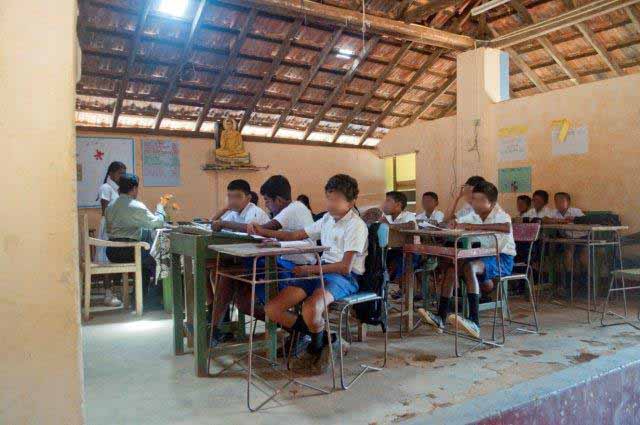By: Staff Writer
October 21, Colombo (LNW): Sri Lanka’s public education system, once considered a model in South Asia—is now facing a deepening crisis, largely due to chronic underfunding and weak fiscal management. A new report by Human Rights Watch (HRW), “Tax Giveaways, Struggling Schools,” paints a troubling picture of the country’s dwindling investment in its children’s future, linking the decline directly to inadequate tax revenue collection and misplaced spending priorities.
According to HRW, Sri Lanka spends just around 2% of its GDP on education, less than half the average for low- and middle-income countries, which stands at 4.5%. Two decades ago, the country allocated nearly 11.7% of government expenditure to education, but even then it lagged behind African peers such as Benin and Côte d’Ivoire, which dedicated close to 19%. By 2009, Sri Lanka’s ranking had slipped to among the lowest in its income group—an alarming sign for a nation that once prided itself on near-universal literacy.
The contrast in per-student spending underscores the widening gap. In 2010, Sri Lanka’s spending per primary student was just $516 (PPP)—a fraction of Morocco’s $1,278 or Bolivia’s $2,121. By comparison, the United Kingdom invested $11,192 per student, a figure that dwarfs Sri Lanka’s education allocation by more than twentyfold.
Experts say the shortfall is not merely a budgetary issue, but a reflection of structural weaknesses in Sri Lanka’s tax system. The report highlights that low tax collection—among the weakest in Asia—has forced the Government to depend heavily on borrowing, even to fund basic education infrastructure. The result has been deteriorating school facilities, teacher shortages, and widening inequalities between urban and rural areas.
“Had Sri Lanka’s tax revenues been comparable to other countries in its income bracket, it could have generated sufficient funds to guarantee the right to quality education,” HRW noted, emphasizing the need for fiscal reform over short-term borrowing.
The report also points to “tax giveaways”—generous exemptions and concessions granted to corporations and investorsthat have drained public coffers of vital revenue. Instead of fostering growth, these incentives have left essential public services starved of funding, HRW argues.
As the Government prepares its next budget cycle, education advocates are urging policymakers to rethink national priorities. They call for an increase in education spending to at least 4% of GDP—the global minimum benchmark set by UNESCO—and the phasing out of unnecessary tax holidays.
Without decisive action, HRW warns, the current generation of Sri Lankan students could face lasting disadvantages in a rapidly changing global economy.
